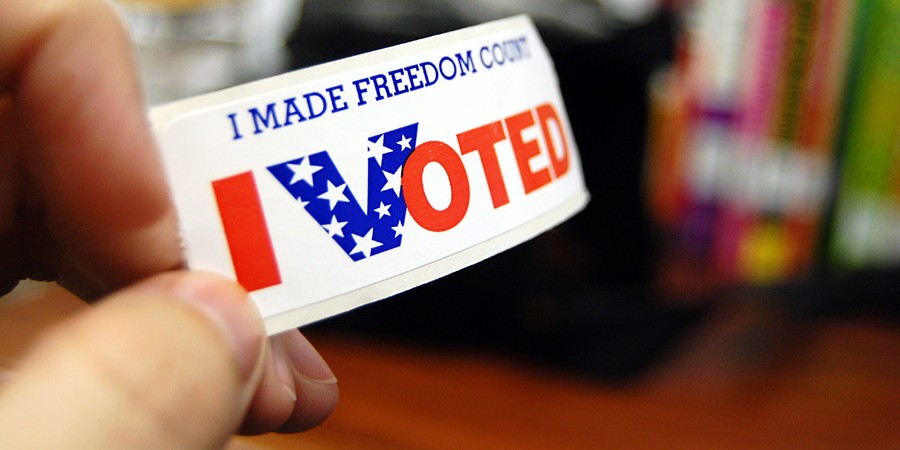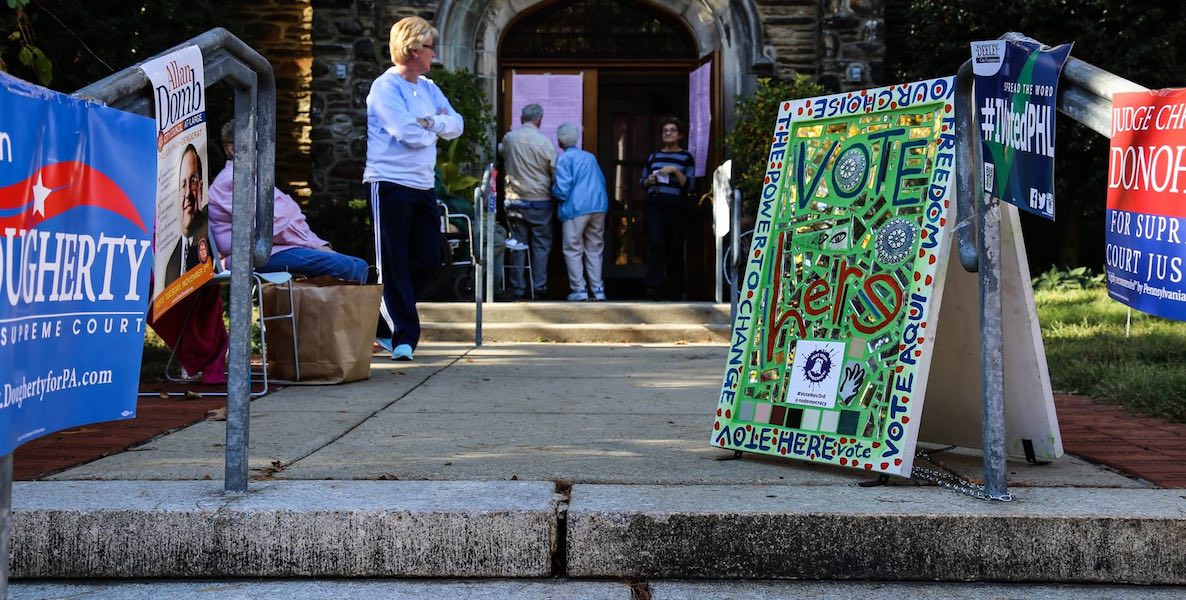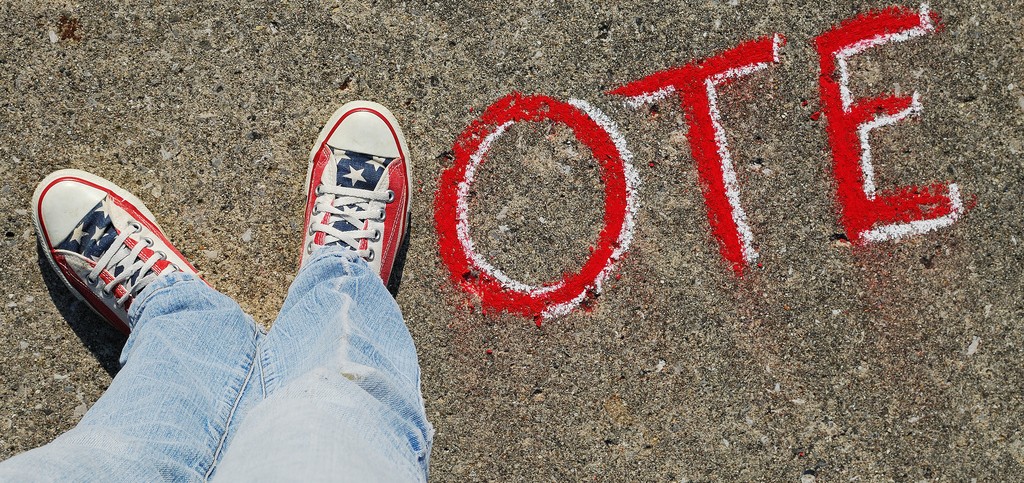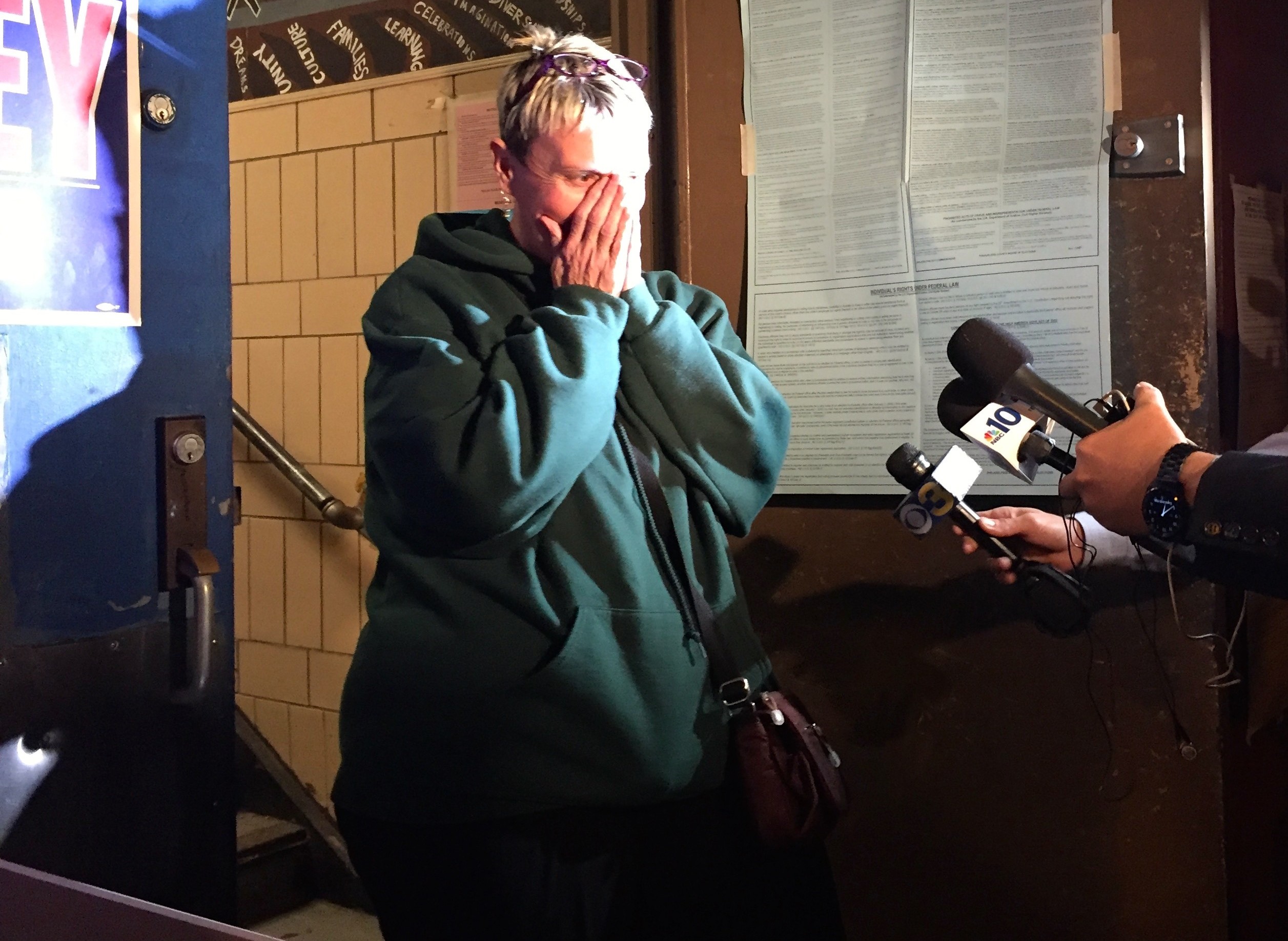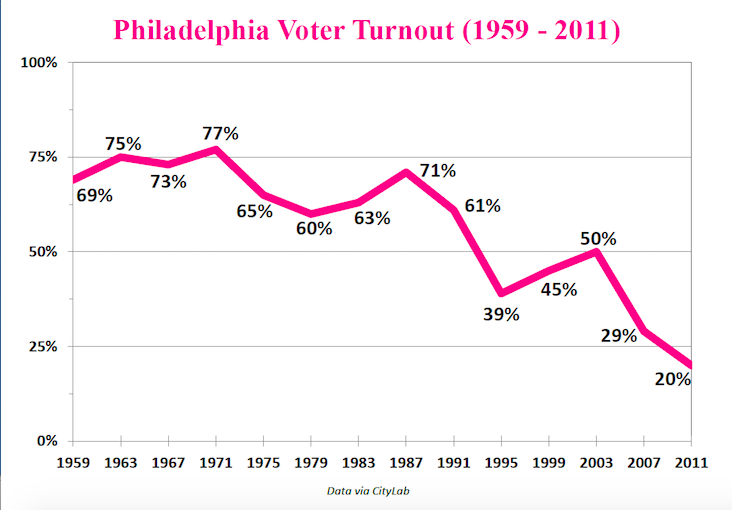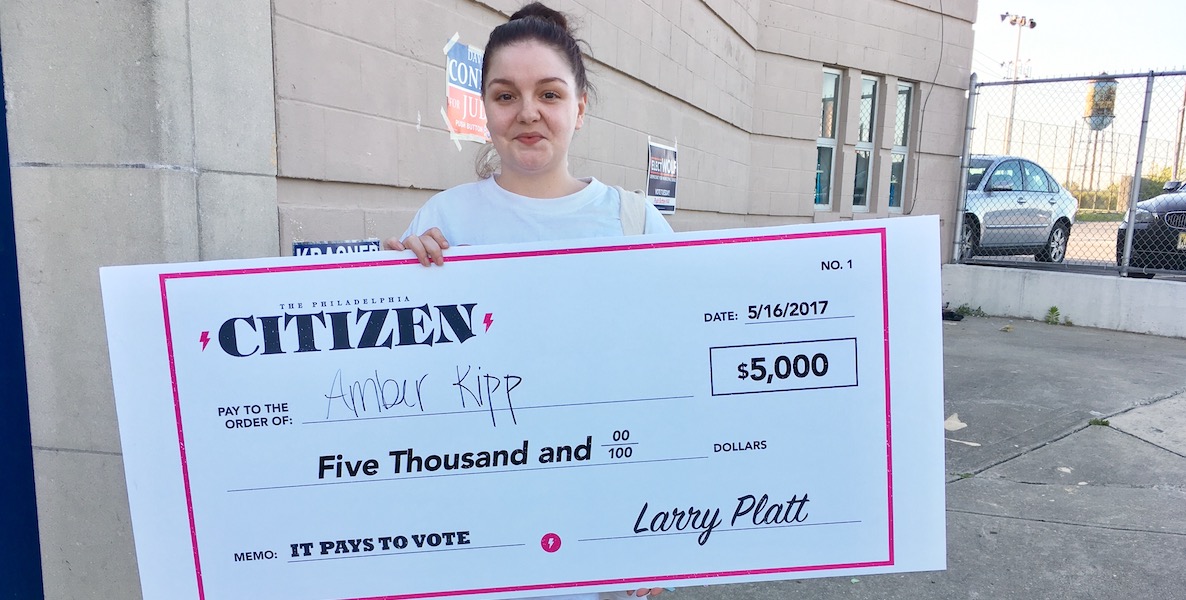Yesterday, Amber Kipp voted. And then her small victory for Democracy turned into a big windfall: As Kipp left the polling place at Harrowgate PAL Center, she won $5,000 in The Citizen’s 2017 Voter Lottery.
“Did you just vote?” Citizen Editor Larry Platt asked Kipp as she exited the polling center on Tioga Street.
She barely got out a “yes” before a handful of poll workers and onlookers shouted “surprise” and started applauding, while Platt handed her a big fake check, written out for $5,000. Kipp, stunned by the attention, and the reward, quietly took in the news. “It’s real, baby!” the crowd shouted.
A stay at home mom of three children and four step children, Kipp said she always votes. “It’s important,” she said. “It’s important for my kids, for the future.”
Kipp will receive her winnings, courtesy of the Pamela + Ajay Raju Foundation, once The Citizen has certified her vote with the City Commissioner’s office. (We also partnered with radio station WURD to spread the word about the lottery.) The Citizen randomly selected her polling place—District 15, Ward 33—and the time—6:38 p.m.—to give out the award, which we announced 13 days ago. Kipp, who emerged from the PAL a little after 7, was the 80th voter of the day.
This is the second time The Citizen has given one random voter a prize for coming out to the polls, in an attempt to increase voter turnout in a city where it has plummeted to embarrassing lows. In November 2015, we awarded South Philly crossing guard Bridget Conroy-Varnis $10,000 for casting a ballot for Mayor.
A stay at home mom of three children and four step children, Kipp said she always votes. “It’s important,” she said. “It’s important for my kids, for the future.”
We’ll be giving away another $5,000 this coming November, for the general election. After that, well … we’d rather not have to give away anymore. A lottery is not the solution to our election woes. There are many reasons for low voter turnout, and—as we noted in our Electoral Reform Guide—many ways we could change the system to make voting easier for more people.
In the meantime, this is how voting looks: In 2015, for the last Mayoral election, just 25 percent of registered voters came out to the polls. In 2013, the last time there was a race for District Attorney, just 11.4 percent of eligible Philadelphians voted. That election gave us the second term of now-disgraced Seth Williams. Pundits predicted a turnout of less than 15 percent for Tuesday’s primary—at a time when local politics matters more than ever.
Right now, the ends are too important to be squeamish about the means. What we learned the first time we did this was something we didn’t necessarily expect: Among the 30 percent of the electorate who knew of our voting lottery, turnout was up five percent. If every voter in the city had known about it, that would have amounted to 50,000 additional votes cast—enough to sway an election.
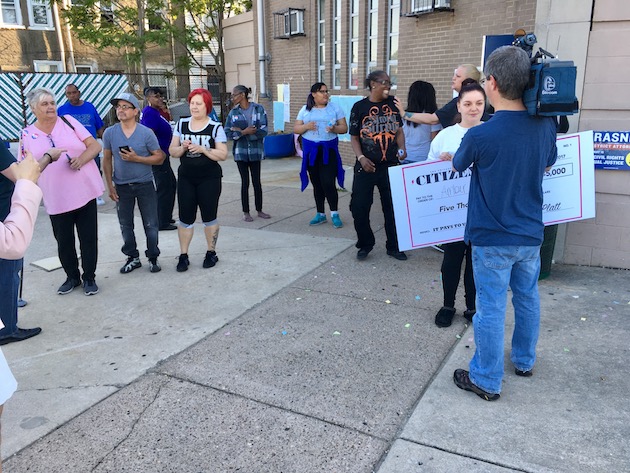
As in 2015, pollsters from Statistics Without Borders and Emerson College Polling Society are doing a pre- and post-election survey this week to find out if this lottery also affected turnout. Stay tuned for the results.
Poll workers at the Harrowgate PAL, at least, assured us they’ll be thronged with voters next time, once word gets out. How great would it be if election day everywhere in Philly elicited that same response, if everyone were greeted not with a check, but with a sense of civic satisfaction?
Well, okay, maybe everyone could also get a little dance, like the one from one of Kipp’s gleeful poll workers, who started shimmying and singing, “That’s my neighbor, that’s my neighbor, that’s my neighbor … ”
Who could object to that?



